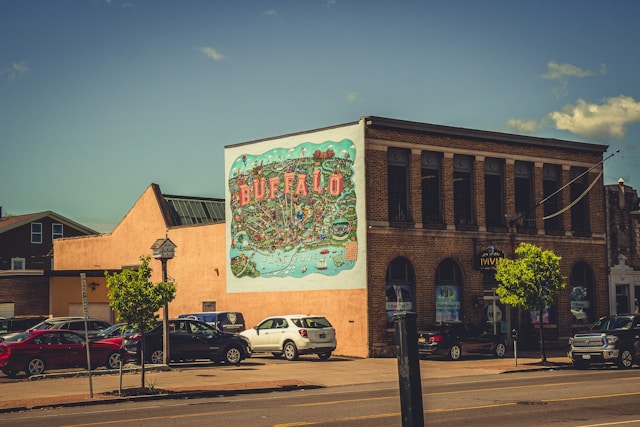Buffalo, New York, a city known for its historic architecture, vibrant arts scene, and proximity to Niagara Falls, has become a popular destination for short-term rental (STR) operators. As more visitors seek out unique and personalized accommodations, platforms like Airbnb have grown significantly in Buffalo.
However, with this growth comes the need for regulation to ensure that short-term rentals coexist harmoniously with long-term residents and local communities. This blog post delves into the current short-term rental regulations in Buffalo, providing essential information for prospective Airbnb hosts and guests.
Overview of Short-Term Rental Regulations in Buffalo
Buffalo’s approach to regulating short-term rentals is designed to balance the economic benefits of increased tourism with the need to maintain neighborhood stability and quality of life for permanent residents. Here are the key points of Buffalo’s short-term rental regulations:
- Registration and Permits
- Registration Requirement: All short-term rental operators in Buffalo are required to register their properties with the city. This helps the city maintain an accurate record of STRs and ensure compliance with local laws.
- Permit Application: Hosts must apply for a permit to legally operate an Airbnb in Buffalo. The application process includes providing detailed information about the property and the owner, as well as paying an application fee.
- Zoning Regulations
- Zoning Compliance: Short-term rentals are subject to zoning laws that dictate where they can be located. Certain areas of the city may have restrictions or prohibitions on STRs to preserve residential character and prevent disruption.
- Primary Residence Requirement: In some residential zones, only primary residences can be used as short-term rentals. This means the property owner must live in the home for a significant portion of the year.
- Safety and Health Standards
- Inspections: Before a permit is granted, the property must pass a safety inspection conducted by city officials. This ensures that the property meets fire safety, health, and building code standards.
- Occupancy Limits: Buffalo imposes occupancy limits on short-term rentals to prevent overcrowding and ensure the safety of guests. These limits are based on the size of the property and the number of bedrooms.
- Taxation
- Hotel Occupancy Tax: Similar to hotels, short-term rentals in Buffalo are subject to a hotel occupancy tax. Hosts are responsible for collecting this tax from guests and remitting it to the city.
- Sales Tax: In addition to the occupancy tax, hosts must also collect and remit state and local sales tax on rental income.
- Noise and Nuisance Regulations
- Noise Ordinances: To minimize disturbances to neighbors, Buffalo enforces strict noise ordinances. Hosts must ensure that their guests comply with these regulations to avoid fines and penalties.
- Complaint Resolution: The city provides a mechanism for residents to file complaints about short-term rentals. Hosts are required to address any issues promptly and may face penalties if they fail to resolve complaints.
Top 100 Airbnb Rental Markets

Instantly compare the top 100 short-term (Airbnb) rental markets in the US
Resources for Buffalo Short-Term Rental Hosts
Navigating the regulatory landscape can be challenging, but there are resources available to help Airbnb hosts in Buffalo comply with local laws:
- City of Buffalo Office of Strategic Planning: This office oversees short-term rental regulations and provides information on registration, permits, and zoning requirements. City of Buffalo STR Regulations.
- Buffalo Municipal Code: The municipal code outlines all the legal requirements for operating a short-term rental in Buffalo. It’s essential for hosts to familiarize themselves with these regulations. Buffalo Municipal Code.
- New York State Department of Taxation and Finance: For information on state and local taxes applicable to short-term rentals, hosts can refer to the New York State Department of Taxation and Finance. NY State Tax Information.
Best Practices for Buffalo Airbnb Hosts
To ensure a successful and compliant short-term rental operation in Buffalo, hosts should consider the following best practices:
- Maintain Open Communication with Guests: Clear communication about house rules, local regulations, and expectations can prevent misunderstandings and ensure a positive experience for both hosts and guests.
- Regular Property Maintenance: Keeping the property well-maintained and addressing any issues promptly can help pass inspections and keep guests safe and satisfied.
- Respect Neighborhood Norms: Being mindful of noise levels, parking, and other neighborhood norms can help maintain good relations with neighbors and avoid complaints.
Conclusion
Buffalo, NY, offers a vibrant market for short-term rentals, providing unique opportunities for Airbnb hosts to capitalize on the city’s growing tourism. However, it is crucial for hosts to adhere to local regulations to ensure their operations are legal and respectful of the community. By staying informed and compliant, short-term rental operators can contribute to Buffalo’s hospitality landscape while enjoying the benefits of this thriving market.


